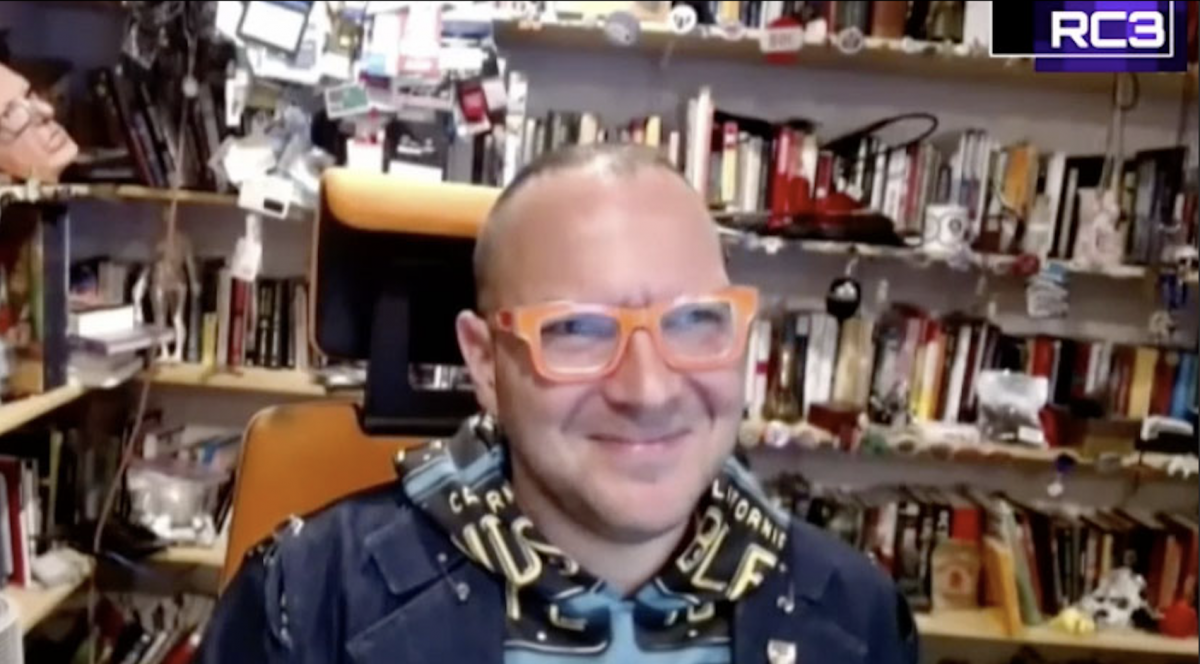rC3: Cory Doctorow warns of “digital equivalents of the atomic bomb”
Source: Heise.de added 28th Dec 2020Science fiction author Cory Doctorow called for stricter antitrust regulations, especially for interoperable online services, at the remote Chaos Communication Congress (rC3) on Sunday in order to maintain competition in the digital age. With the five greats of US surveillance capitalism – Google, Amazon, Facebook, Apple and Microsoft (GAFAM) – “the worst nightmares” of the early advocates of civil rights on the Internet have come true. Political and legal countermeasures are therefore overdue.
Potential for a Big Brother dystopia As a “blind spot” in the eye of early “cyber-optimists” like Grateful Dead songwriter and activist John Perry Barlow, who 1990 in In a famous statement that rejected the governability of the Internet by state actors, Doctorow identified the dark potential of new technologies for building a Big Brother dystopia. They did not realize that the use of digital products such as Microsoft Windows and Office as well as social media would be massively increased by network effects and thus tend to monopoly structures.
In fact, the regulatory environment in the 1990 and the Internet looked like an “almost perfect market” after the break-up of AT & T’s monopoly in the telecommunications market and the US government’s antitrust proceedings against Microsoft, admitted the US comrade – Electronic Frontier Foundation (EFF) civil rights organization. The cyberuphorics had therefore thought that everyone could now reach a global audience with their products and services from their garage via a cheap network. But this was “naive”.
Monopoly position of large corporations has become routine At the same time, the antitrust law had been put into trouble by the influential US lawyer Robert Bork, who had already acted criminally as the chief lawyer of President Richard Nixon, Doctorow explained. This has made the theory acceptable internationally that monopolies are not bad in themselves. It only becomes dangerous if they raise prices and harm consumers. This view prevailed in Europe during the Reagan era.
A real abuse of power can hardly be proven for today’s monopolists like the GAFAM-League despite their “predatory behavior” and is already routine the Canadian complained. They are likely to buy up competitors with impunity and expand their markets horizontally and vertically. Google, for example, has only built one and a half innovative and successful products of its own: the search engine and the Hotmail clone Gmail. Android, technology for online ad networks (AdTech) and YouTube are all just bought in.
“Garage myth” of the digital companies is no longer applicable The state is even cementing the dominant position of digital corporations, Doctorow referred to the excesses of the system for “intellectual property”. Thanks to “author monopolies” such as software patents, copyright, general terms and conditions, potentially new copyright claims on interfaces (APIs) and the legal protection of technology for digital rights control management (DRM), companies could use upload filters, for example, to hinder competition and put their customers in distress bring. Governments help them to enforce their intellectual property rights and, for example, confiscate imitations at the borders.
The “garage myth” is thus finally invalid, said the civil rights activist. Start-up founders would have to fight against monopolies with enormous growth rates today and would no longer be able to easily access venture capital in the area of the “kill zone of the big five”. Meanwhile, employees of tech companies only dreamed of the free massage on Wednesdays or a good pension plan.
Competition further undermined For Doctorow, it is therefore the highest level not only to sharpen competition law again, but also to “rediscover the liberating power of technology”. After an initial test of a nuclear weapon he helped develop as part of the Manhattan Project, Robert Oppenheimer at least tried to “put the spirit back in the bottle” and put down his tools. Today’s technology developers should therefore also abandon building “digital equivalents of the atomic bomb” and rely on interoperable open services.
“We are at a crucial crossroads,” warned the network activist. Programmers shouldn’t make Orwell look like optimists. With the Internet of Things, not only would electronic eyes be created everywhere, some of which users could research without blinking and report them to the authorities. Every networked device is also shielded with many intellectual property rights, so that it can hardly be used for other purposes. In this way, competition will be further undermined. Monopolies could destroy lives, however, because many people need drugs, vaccines or glasses and fly by airplanes.
(tiw)
brands: Amazon Apple Brother Built Chief Crucial Fly Google longer Manhattan Microsoft New Office other media: Heise.de keywords: Amazon Android Apple Facebook Google Internet Software Windows YouTube
Related posts
Notice: Undefined variable: all_related in /var/www/vhosts/rondea.com/httpdocs/wp-content/themes/rondea-2-0/single-article.php on line 88
Notice: Undefined variable: all_related in /var/www/vhosts/rondea.com/httpdocs/wp-content/themes/rondea-2-0/single-article.php on line 88
Related Products
Notice: Undefined variable: all_related in /var/www/vhosts/rondea.com/httpdocs/wp-content/themes/rondea-2-0/single-article.php on line 91
Warning: Invalid argument supplied for foreach() in /var/www/vhosts/rondea.com/httpdocs/wp-content/themes/rondea-2-0/single-article.php on line 91
